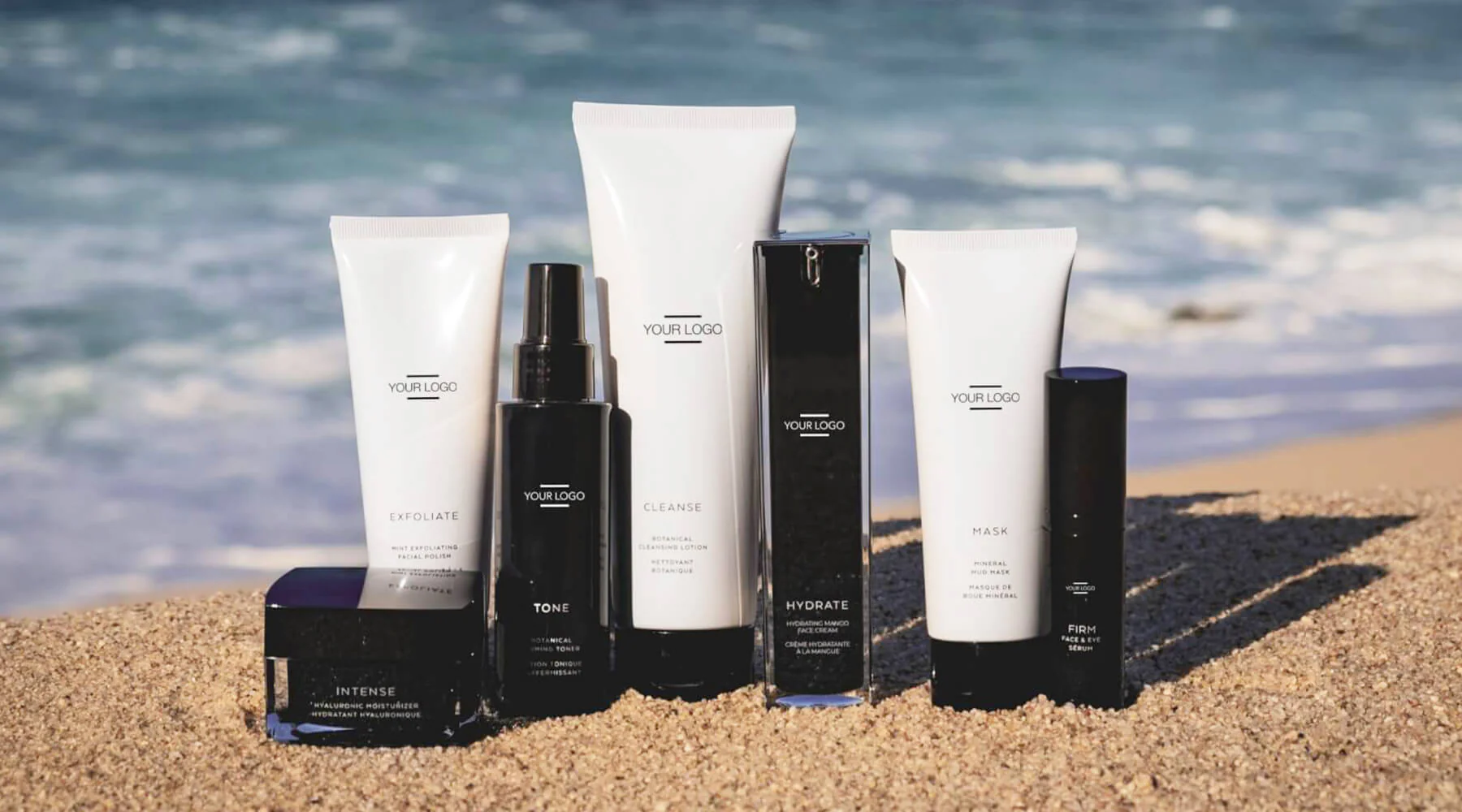The skincare industry is booming, and there’s never been a better time for small business owners to dive into the Private Label Skincare Plus market. With consumer preferences leaning toward personalized and unique products, private label skincare offers a golden opportunity to establish a distinct brand without the hefty investment required for product development from scratch.
In this comprehensive guide, we will explore everything you need to know about private label skincare, from understanding what it is and its benefits to choosing the right partner and effectively marketing your products.
What is Private Label Skincare?
Private label skincare involves partnering with a manufacturer to create skincare products that are branded under your company’s name. These products are often based on pre-formulated recipes, allowing you to focus on branding, marketing, and sales without the need for extensive research and development.
Benefits of Private Label Skincare
- Cost-Effective: Developing skincare products from scratch requires significant investment in R&D, testing, and compliance. Private labeling allows you to bypass these costs, making it more affordable to enter the market.
- Faster Time-to-Market: With formulations already in place, you can launch your products much quicker than if you were to develop them yourself.
- Brand Exclusivity: Unlike white-label products, private label items give you the exclusivity to brand and market them as your own, creating a unique identity in the marketplace.
- Quality Control: Reputable private label manufacturers adhere to high standards of quality and compliance, ensuring your products are safe and effective.
- Flexibility: You can easily update or expand your product line based on market trends and consumer feedback.
Choosing the Right Private Label Skincare Partner
Selecting the right manufacturing partner is crucial to your brand’s success. Here are some factors to consider:
Experience and Reputation
Look for manufacturers with a solid track record in the skincare industry. Customer reviews, testimonials, and case studies can provide valuable insights into their reliability and the quality of their products.
Product Range and Customization
Ensure the manufacturer offers a wide range of formulations and customization options. This flexibility allows you to tailor products to meet the specific needs and preferences of your target audience.
Compliance and Certifications
Compliance with industry regulations and certifications (e.g., FDA, GMP) is non-negotiable. Verify that the manufacturer adheres to these standards to ensure your products are safe and legally compliant.
Sampling and Testing
Before committing, request samples to evaluate the quality and effectiveness of the formulations. Consider conducting independent lab tests to verify the manufacturer’s claims.
Minimum Order Quantities (MOQs)
Understand the manufacturer’s MOQs and ensure they align with your budget and sales projections. Some manufacturers offer lower MOQs, making it easier for small businesses to get started.
Support and Services
A good private label partner should offer comprehensive support, including product development, packaging, and marketing assistance. This support can be invaluable, especially for small business owners new to the industry.
Developing Your Private Label Skincare Line
Once you’ve chosen a reliable partner, the next step is developing your product line. Here’s a step-by-step guide:
1. Market Research
Identify your target audience and understand their skincare needs and preferences. Analyze competitors to identify gaps in the market that your products can fill.
2. Product Selection
Based on your market research, select the types of products to include in your line, such as cleansers, moisturizers, serums, or masks. Consider offering products that address specific skin concerns, like acne, aging, or sensitivity.
3. Branding and Packaging
Your brand identity should resonate with your target audience. Develop a cohesive brand story, logo, and packaging design that reflects your brand values and appeals to your customers.
4. Formulation Customization
Work with your manufacturer to customize formulations based on your brand’s unique selling points and customer preferences. Consider factors like ingredients, scents, and textures.
5. Quality Assurance
Implement stringent quality control measures to ensure consistency and safety across all products. This step may involve regular testing and batch inspections.
6. Pricing Strategy
Develop a pricing strategy that balances affordability with perceived value. Consider production costs, competitor pricing, and your target market’s willingness to pay.
Marketing Your Private Label Skincare Brand
Effective marketing is key to driving traffic and sales for your skincare brand. Here are some strategies to consider:
Digital Marketing
- Website and E-commerce: Create a user-friendly, visually appealing website with e-commerce capabilities. Ensure it’s optimized for SEO to attract organic traffic.
- Content Marketing: Publish valuable content, such as blog posts, videos, and tutorials, to educate your audience and establish your brand as an authority in the skincare industry.
- Social Media: Leverage social media platforms to engage with your audience, share user-generated content, and run targeted ad campaigns.
- Email Marketing: Build an email list and send regular newsletters with promotions, skincare tips, and product updates.
Influencer Partnerships
Collaborate with influencers who align with your brand values and have a genuine connection with your target audience. Influencer endorsements can significantly boost brand visibility and credibility.
Public Relations
Secure media coverage by reaching out to beauty editors, bloggers, and industry publications. Press releases and product samples can help generate buzz and attract attention.
Customer Reviews and Testimonials
Encourage satisfied customers to leave reviews and testimonials. Positive feedback can build trust and influence potential buyers.
Conclusion
Services Private Label Skincare Plus offers small business owners a lucrative opportunity to enter the thriving skincare market with minimal investment and risk. By partnering with a reputable manufacturer and implementing effective marketing strategies, you can build a unique brand that resonates with your target audience and drives long-term success.
Ready to take the plunge into private label skincare? Start by conducting thorough research, choosing the right partner, and focusing on delivering high-quality products that meet the needs of your customers. With dedication and strategic planning, you can carve out a profitable niche in the competitive skincare industry.
For more insights and resources on private label skincare, subscribe to our newsletter and join our community of like-minded entrepreneurs dedicated to achieving success in the beauty industry.

